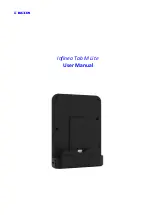
If the battery pack is to be stored separately, place it in a dry environment of a
temperature between 10-35° C and keep it away from direct sunlight. To
extend battery life, we recommend you charge the battery to approximately 30
to 50% capacity and recharge it every three months to prevent the battery
from over-discharging.
Legal notices
78
NS-P11W7100/NS-P11W7100-C
1. FCC Caution - §15.21:
Changes or modifications not expressly approved by the party responsible for
compliance could void the user's authority to operate the equipment.
2. FCC Statement - §15.105(b):
This equipment has been tested and found to comply with the limits for a Class
B digital device, pursuant to part 15 of the FCC Rules. These limits are designed
to provide reasonable protection against harmful interference in a residential
installation. This equipment generates, uses and can radiate radio frequency
energy and, if not installed and used in accordanc
e with the instructions, may cause harmful interference to radio communications.
However, there is no guarantee that interference will not occur in a particular
installation. If this equipment does cause harmful interference to radio or television
reception, which can be determined by turning the equipment off and on, the user is
encouraged to try to correct the interference by one or more of the following measures:
—Reorient or relocate the receiving antenna.
—Increase the separation between the equipment and receiver.
—Connect the equipment into an outlet on a circuit different from that to which the
receiver is connected.
—Consult the dealer or an experienced radio/TV technician for help.
3. RF exposure
This device has been tested and meets applicable limits for radio frequency (RF)
exposure. Specific Absorption Rate (SAR) refers to the rate at which the body
absorbs RF energy. The SAR limit is 1.6 watts per kilogram averaged over 1 gram
of tissue.






































